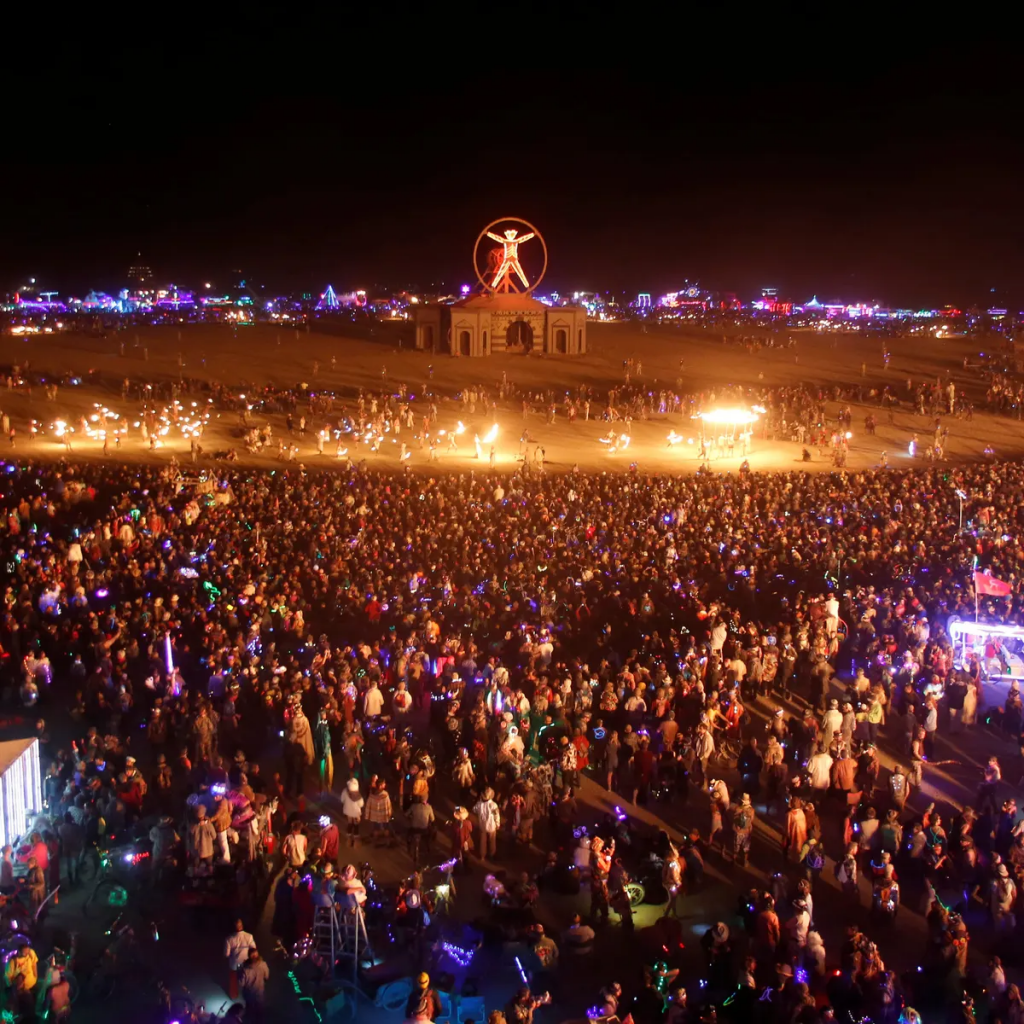Burning Man, traditionally known for attracting a mix of high-profile individuals and free-spirited attendees, has become the stage for a different kind of spectacle this year. Climate activists, often associated with their commitment to sustainability and systemic change, have interrupted the festivities with their impassioned plea for environmental responsibility.
As festivalgoers arrived at the gate, they were met with an unusual sight: climate activists forming a human blockade, chaining themselves to a trailer. Videos posted to X captured the activists displaying signs that read “Burners of the world, unite,” “Abolish capitalism,” and “General strike for the climate.” Their message was clear: The organizers of Burning Man should address the festering issues of private jets and single-use plastics, both of which contribute to environmental degradation.
The blockade was eventually disbanded by Pyramid Lake Paiute tribal police, who arrested four protesters. The action had been organized by Seven Circles, a coalition of climate activists and anti-capitalist groups, including festival attendees. The coalition’s message demanded radical honesty, community mobilization, and leading by example. Specifically, they called for bans on private jets, excessive propane burning, and unrestricted generator use.
Criticism was also directed at the evolving nature of Burning Man itself. The festival has become a playground for Silicon Valley elites and influencers who often arrive on private jets and inhabit lavish encampments. This shift led Seven Circles to express concerns about the event’s commodification, with affluent individuals not fully embodying Burning Man’s stated values.
Mun Chung, one of the activists, emphasized the imperative of addressing excessive carbon emissions: “No single individual should have the luxury of emitting 10 to 20 times more carbon pollution than a commercial airline passenger. Burners, rebel with us.”
While Burning Man Project, the organizing entity, promotes eco-conscious principles such as minimal environmental impact and collaboration, its illustrious history is intertwined with high-profile attendees like Elon Musk and Jeff Bezos. These attendees have often brought private jets and luxury accommodations to the event, resulting in waste and a notable carbon footprint.

The festival’s carbon footprint, outlined in its sustainability roadmap, reached approximately 100,000 tons of CO2 per year as of 2019. The roadmap also outlines ambitions to achieve carbon negativity by 2030. Nevertheless, the festival’s increasing popularity among the affluent has fueled concerns about whether its core principles can be upheld amidst such opulent displays and environmental impacts.
As the festival evolves, it faces a crucial decision: to align with its foundational values or to succumb to the allure of luxury and status. The collision of these contrasting ideologies reflects broader societal debates about the balance between individual indulgence and collective well-being.


